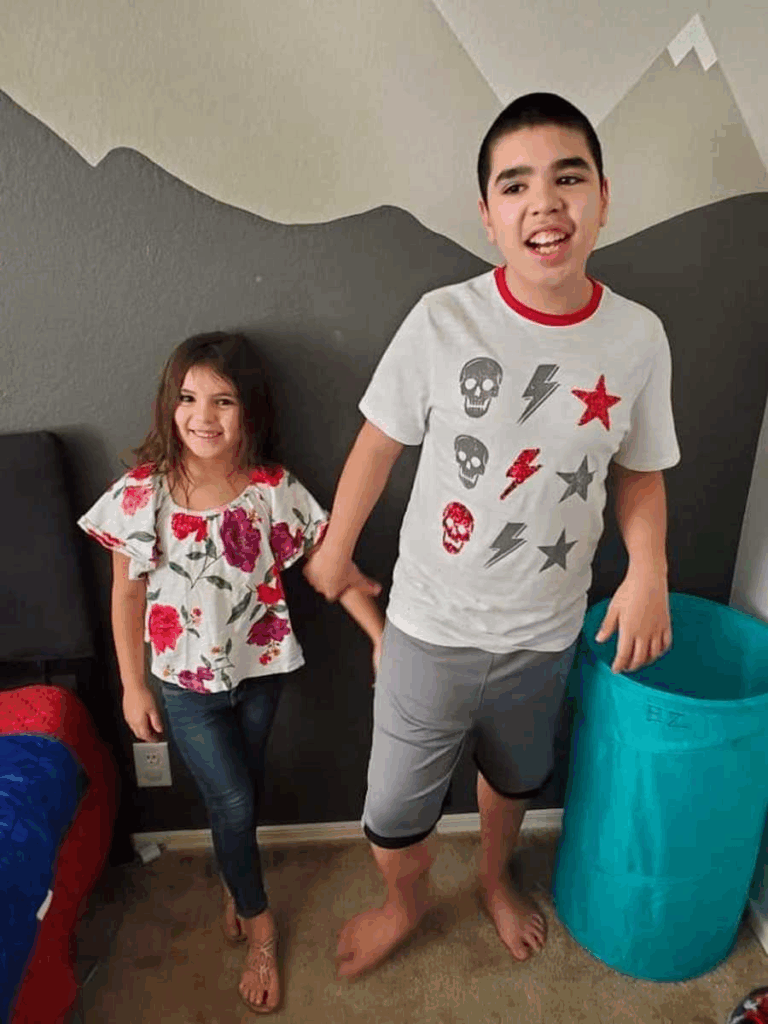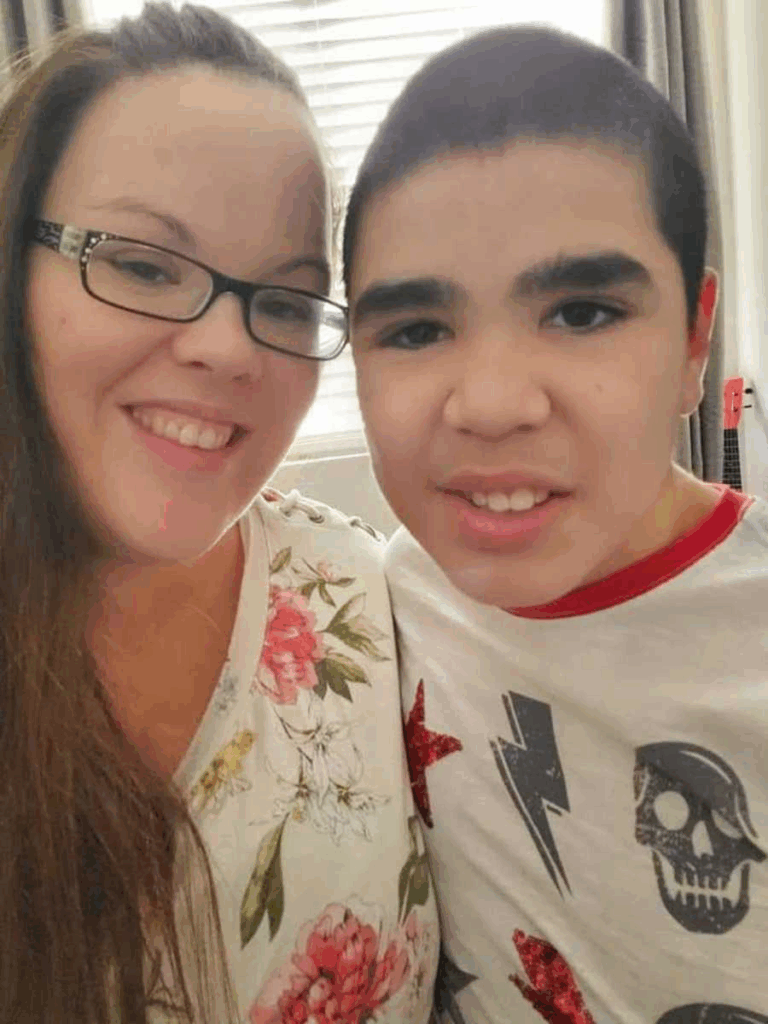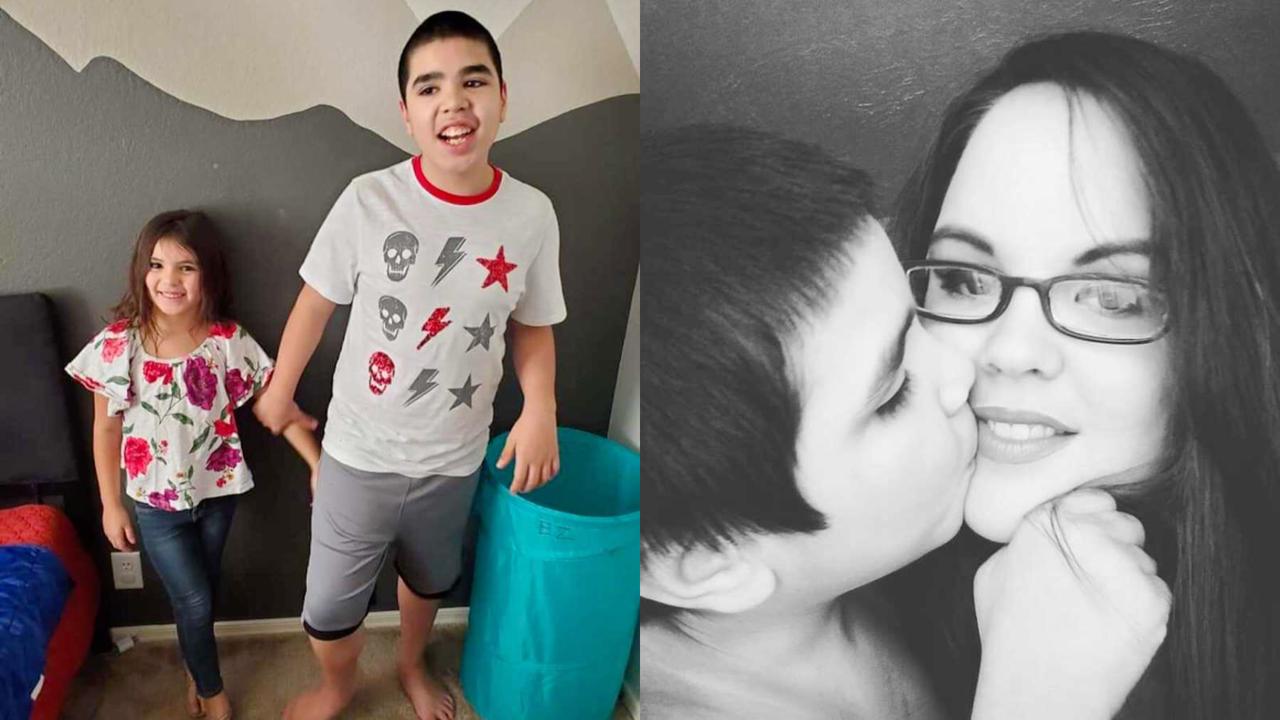I was 16, sitting in the back room of a pregnancy center, waiting for my test results. Everything felt blurry, almost unreal. When the volunteer uncovered the test, there it was positive. I was pregnant.

My mother was in the waiting room. She just looked at me and said, “I knew it,” smiling in a way I still don’t understand. She called the baby’s father, whose first words were, “How do I know it’s mine?” I was still trying to process everything. I was shocked after hearing that that how could he say that so easy.
Pregnancy wasn’t easy. My mom was a drug addict, swinging between being supportive and abusive. We moved constantly. When my son Evelio was born six weeks early we were homeless. He spent a week in the NICU, hooked up to machines.

From early on, I sensed something different about him. He didn’t speak much, avoided other kids, flapped his hands, and moved his head oddly. At 2½, I finally researched autism. The screening showed “high risk,” and months later, doctors confirmed it he was functioning at a 9–13-month level.

As he grew, Evelio’s aggression worsened. He bit, scratched, banged his head, and destroyed things. At age 4, he entered his first residential treatment program for five months, but after returning home, his behaviors came back. Over the next years, he was also diagnosed with epilepsy, PANDAS, and mood disorders.

In 2016, while I was away for my college graduation, Evelio attacked his grandmother and severely injured his 3-year-old sister. CPS got involved, separating my children for months. Hospitals refused to keep him, and state insurance denied funding for placement. I was desperate, even considering giving up custody so he could get help.
For an entire year, I battle with insurance companies making daily calls, contacting lawmakers, and documenting every outburst. Finally, in 2017, my state representative pushed through approval for a residential facility in New Mexico. Evelio stayed there for a year, making progress.
We moved to Arizona for better services and good opportunities. After more hospital stays, Evelio transitioned into a group home in 2019. There, he attends a specialized school, has one-on-one staff, and receives behavioral therapy.
Though he still has challenges, he’s safer, calmer, and our visits are filled with smiles and hugs instead of fear. I wish he could live at home, but I’ve accepted this is what’s best for now.

To other families facing severe autism: don’t give up. Fight for the help your child needs. Ignore the judgment. Keep pushing until someone listens. And find your community people who truly understand. You are not alone.











